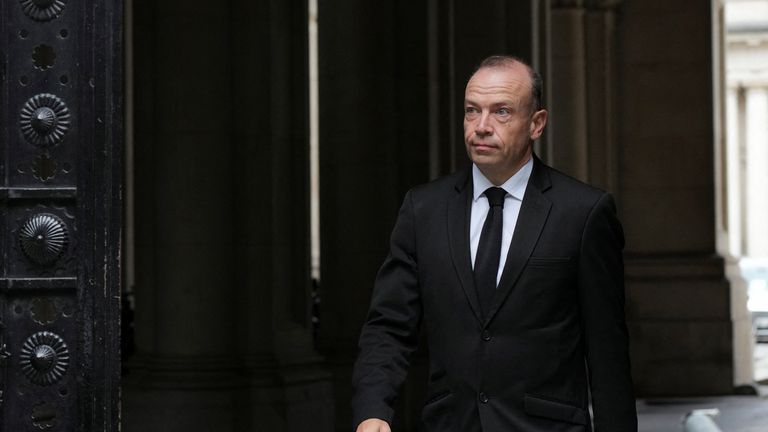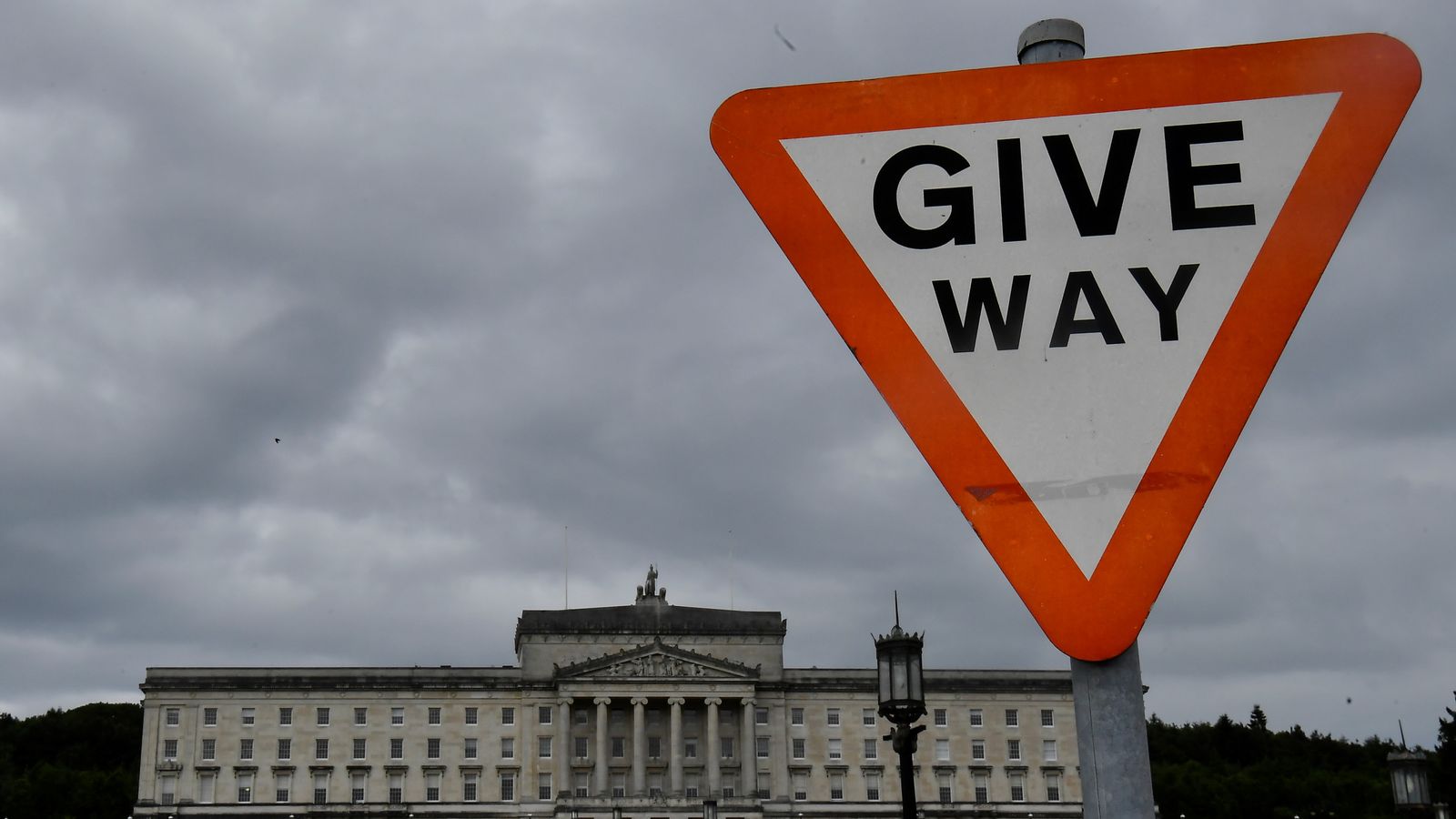
Northern Ireland is set to have a pre-Christmas Assembly election as the deadline to restore devolved government at Stormont has expired.
The region has been in a political crisis for months with the Democratic Unionist Party (DUP) refusing to return to power-sharing since losing its status as the nation’s largest party to Sinn Fein in May – as it opposed the Northern Ireland Protocol.
Northern Ireland Secretary Chris Heaton-Harris is due to call the election on Friday following the failure of a last-ditch attempt to restore the multi-party executive.
A six-month legislative timeframe to form an administration expired in the early hours of Friday, and with no ministerial executive in place, the UK government assumes a legal responsibility to call another election.
There has been speculation the poll would be held on 15 December, though the details are yet to be announced by Mr Heaton-Harris.
Meanwhile, Stormont ministers ceased to hold office at midnight after operating in shadow form since the Assembly collapsed earlier this year.
Senior civil servants will now be responsible for running devolved departments until a government is formed.
On Thursday, MLAs met during a recalled sitting of the Assembly in a bid to elect a new speaker, but it did not go ahead as the DUP refused to support the nominations and the session was suspended.
The DUP’s boycott of the Stormont institution is part of a campaign of opposition to the protocol, with the party claiming it will not return to powersharing until decisive action is taken to remove economic barriers on trade between Great Britain and Northern Ireland.
On Sunday, Ireland’s foreign minister Simon Coveney said “political instability” in Westminster caused by two prime ministers in as many months meant it was “impossible” for the EU and UK to strike a deal on the protocol by Friday.
He said the “sensible” thing was for power-sharing to resume while negotiations over the Northern Ireland Protocol continue.
The protocol has effectively placed a sea border between Great Britain and Northern Ireland after Brexit and has meant businesses have struggled.
The government has vowed to secure changes to the protocol to empower ministers to scrap the arrangements without the approval of Brussels – either by a negotiated compromise with the EU or through proposed domestic legislation.
DUP leader Sir Jeffrey Donaldson argued not enough progress has been made on addressing issues of concern around the protocol.
But Sinn Fein’s Stormont leader Michelle O’Neill said the DUP “have left us all at the mercy of a heartless and dysfunctional Tory government”.
New PM Rishi Sunak also urged the DUP to get back to Stormont just hours before the deadline to restore devolution elapsed.
His official spokesman said: “There’s still time for the DUP and executives to get back to Stormont and we urge them to do so because the people of Northern Ireland deserve a fully functioning and locally elected executive which can respond to the issues facing the communities there.”
Read more:
Why is there still no assembly and what does Brexit have to do with it?
Sinn Fein emerged as the largest party for the first time in the last Northern Ireland Assembly election in May of this year.
Meanwhile, the UK government has insisted it is not considering a joint authority arrangement with Dublin for the governance of Northern Ireland in the absence of the Stormont executive.
Both Ireland’s premier Micheal Martin and Ms O’Neill have said there cannot be direct rule from Westminster in the event of powersharing not being restored.
But an NIO spokesperson said: “The UK government is absolutely clear that the consent principle governs the constitutional position of Northern Ireland.
“We will not countenance any arrangements that are inconsistent with that principle.”













